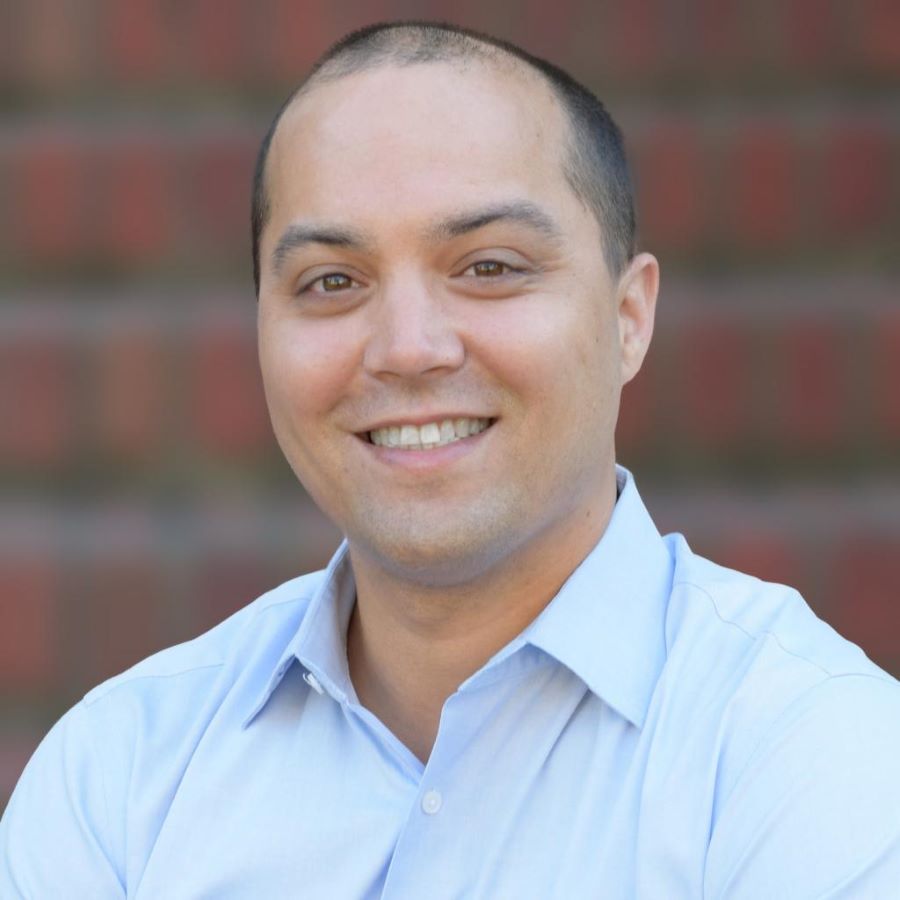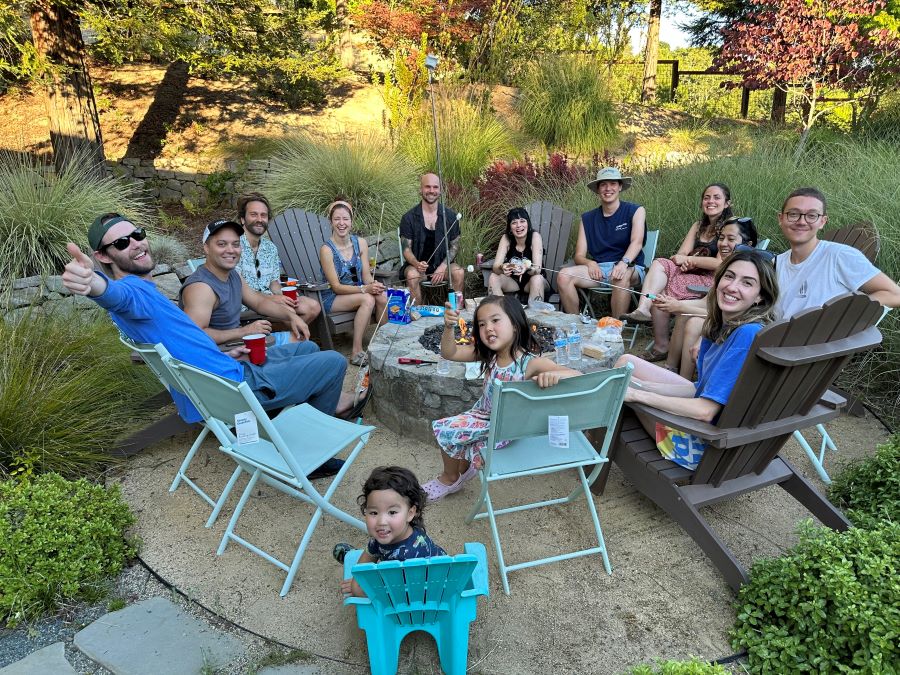
Faculty Research Spotlight
James Olzmann: Big Questions and Aha! Moments
By Kirsten Mickelwait

James Olzmann’s lab has certainly had its share of “aha!” moments. These come not just from serendipitous discoveries, he says, but from “having a prepared mind.” Strange findings occur all the time, but unless you’re ready to recognize them, or see them from a broader perspective, you might just miss them. “Our scientific discoveries come from having very creative students and trainees working on these projects, thinking very deeply about these issues,” he says.
Olzmann is a professor of molecular therapeutics who studies the mechanisms that govern organelle and lipid homeostasis in health and disease. The Olzmann Lab seeks to understand how lipids are handled and regulated in cells, and to apply this knowledge to develop new therapeutics. Using a combination of systems biology, chemical biology, and such technologies as CRISPR-based genetic screens, the lab’s research focuses on the cell biology of lipids: how they're stored, how they're used, and how cells prevent them from being damaged. These processes? have inherent connections with human health; particularly metabolic diseases, cancer, and neurodegeneration.
Lipids are typically stored in organelles—structures inside a cell with unique functions—called lipid droplets. “These are a more newly appreciated organelle,” Olzmann says. “For years, they were mostly ignored and not really thought to be organelles, just inert fat globules of little interest. However, we now understand that they're real organelles—dynamic storage depots that can provide lipids for on-demand use in the cell.”
Olzmann’s lab is addressing that knowledge gap to understand how these lipid droplets are formed, what their composition is, how they're regulated, and how these differ in different tissues and in different diseases. “We're taking a very broad, unbiased approach to answering these questions,” he says. “And something I love about this is the potential for surprises and new directions.”

One example: Alyssa Mathiowetz, a graduate student in Olzmann’s lab, recently conducted more than 20 genetic screens under different metabolic conditions to learn how these lipid droplets are regulated in hepatocytes—the cell type that accumulates lipids and develops fatty liver disease. Mathiowetz found new factors that regulate neutral lipid storage and secretion in the liver but, in one of those serendipitous scientific moments, she also found that the same factors also regulate assembly of the nuclear pore complex, a key regulator of transport between the cytoplasm and nucleus.
“This was a totally unexpected result,” Olzmann says. “We began this journey looking at lipid storage in the liver, and we ended up making a really profound discovery related to nuclear pore complexes.” The work was recently published as a preprint and is currently in revision for publication in a journal.
Another area of focus for Olzmann is on a recently discovered form of cell death called ferroptosis, which involves the buildup of lipids damaged from being oxidized. He compares this process to cooking oils turning rancid, with a similar means of fighting it. “Just like the oils in our kitchen cabinet have antioxidants added to them, we have processes in our cells to combat oxidation of the lipids,” he says.
The lab has been running genetic screens to identify new factors that combat ferroptosis in cancer, and to develop small-molecule therapeutic compounds against these pathways. In the past few years, they discovered a new pathway that suppresses this form of cell death and cancer, which indicates potential therapeutic value. Last year, the lab worked with Julia Schaletzky, of the UC Berkeley Drug Discovery Center, to identify drug-like molecules that target this protein and sensitize cancer to ferroptosis. Olzmann received the 2022 Bakar Fellows Spark Award for this work.
“I honestly wasn't looking to develop small-molecule drugs, but these discoveries by a postdoc and a graduate student in my lab were so profound and there was so much therapeutic potential, I thought we can't not pursue these questions,” he says.
Before joining the UC Berkeley faculty as an assistant professor in 2013, Olzmann received his PhD from Emory University in Neuroscience and completed his postdoc at Stanford. He was an investigator at the Chan Zuckerberg Biohub from 2019 to 2024.
Now, he’s particularly excited by MCB’s launching of a new division of molecular therapeutics (MTx) and of the new Molecular Therapeutics Initiative (MTI), led by co-directors Daniel Nomura and Roberto Zoncu and MTx Division Head Michael Rapé. “It’s creating many new training opportunities for students in terms of drug discovery and disease and the critical infrastructure to support drug development on campus,” he says.

While the overarching goal of his lab is to understand fundamental processes and principles of cell biology and then translate them into therapeutics, Olzmann takes even more pleasure from mentoring and partnering with his students. “These graduate students are real innovators,” he says. “They want to go after big questions in creative ways; they want to make impactful science. It makes it a ton of fun for me to be a part of that process.”
Olzmann and his wife, Elena, a real estate broker, have two young children: a daughter, Lexi, who’s five, and a son, Ben, who’s almost three. Life is getting increasingly busy, he says, with two careers plus pick-ups and drop-offs and birthday parties and after school activities. But there may be another scientist in the family’s future. Last year, Lexi asked her dad to bring her a “science dress,” which turned out to mean a white lab coat. “Now she has her own science dress and likes the idea of being a scientist,” he says with a grin. “MCB class of 2041?!”
Learn more about research in the Olzmann Lab: www.olzmannlab.com
Back to Main Fall 2024 Newsletter Page




